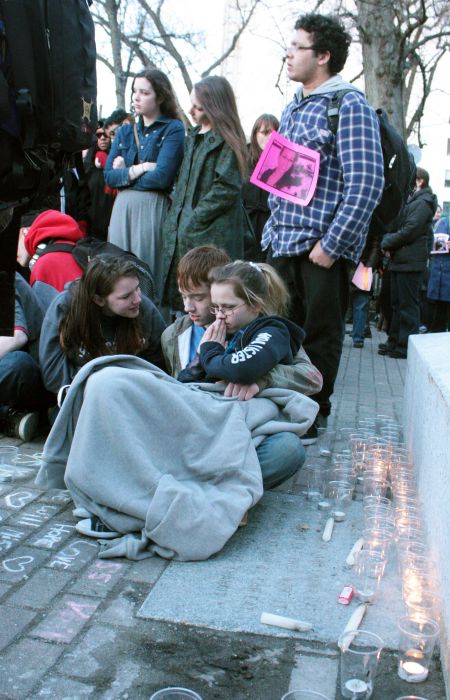Typically, says Morris Green, getting guys to admit they might have issues is an uphill battle.
"[M]en don't seek help to the same degree that women seek help," says Green, co-ordinator of youth health for Capital Health.
So, thought Green, it’d be best to hit the boys early.
"Myself and a colleague were invited to attend a workshop in November of 2011 on men’s health,” Green explains. “It was really looking at some of the issues around men’s health in the country…
"[O]ne of the motivations for the project is to try to figure out how can [we] get more guys to talk about their problems, recognize that they have problems, and then go seek help for their problems."
In the wake of the outrage surrounding the tragedy of Rehtaeh Parsons’ suicide, there has been a great deal of criticism of the education and public health systems. Discussions have focused on anti-bullying programs and what can be done within the secondary school structure to curb violence and intimidation.
Green, however, has looked specifically at sexual assault prevention and teaching healthy living to young men, piloting a special project in Oxford School on Chebucto Road.
"My particular piece was the Healthy Living [grade] 9 curriculum, and this year we segregated the group into two genders. I've taken all the boys. So... myself and a co-facilitator [filmmaker Sobaz Benjamin] have had these guys since September, basically covering all aspects of youth health including things that touched on sexual violence and sexual assault."
By separating the boys from the girls, Green says the program was able to open up healthy dialogue amoung the young men by providing a safe space to have discussions about health issues.
And with the program being so new, the boys had plenty of opportunity to provide input as to its content, Green says.
"Typically we have programs, policies, and strategies that impact youth but we rarely ask youth to sit at the table with us as they're developed" says Green. By allowing input from those affected by health and sexuality issues, Green finds the program is able to create more well-rounded and effective strategies for dealing with health and sexuality issues.
Green says the “hypersexualization” of teens – which he notes is not limited to women in today’s society – was one of the driving factors for developing the program.
With young men facing a constant barrage of advertising, many are now attempting to live up to unattainable images of what the media portrays as ideal men. This has devastating effects on both young men’s self-esteem and how they treat the women in their lives.
"We've seen hypersexualization in the lives of women for quite a number of years. The way they're portrayed in the media, the way they're portrayed in pop culture, and we're increasingly seeing the same thing happen to guys," says Green.
Green says the boys’ response to the program has been overwhelmingly positive. "It was great news. It told us we were reaching the young people the way that we had intended…What I am pleased about is that the guys want to continue doing this work when they're in Citadel High School next year. The guys have said that some of the baggage on their back as guys earlier in the year has sort of come off, that they're becoming men just like they were
before but perhaps not sliding as easily into that conventional type of guy that we're trying to deconstruct" said Green.
Parents’ response has also been generally positive, with some noting a boost in their child’s self-esteem.
Green says getting boys to open up about all sorts of issues, including mental health and substance abuse, has a direct correlation to sexual assault and how men are treating the women in their lives.
"If we attract more guys to the youth health centers that does have a connection with sexual violence and sexual assault because if guys are having issues with substance abuse there’s a connection there with sexual assault and sexual violence, particularly alcohol. If they're depressed or having difficulties in their lives in any way shape or form there are connections there with how they are treating members of the other gender" explains Green.
Green says version 2.0 of the program will continue in the fall, and he hopes to have the opportunity to work with youth throughout high school. But he’s glad to have had the “early intervention” in junior high.
"[T]he earlier you can address a health issue the greater the chances of recovery, the greater the chances of reducing the collateral damage amoung family and friends, and the greater the chances you can return a youth to their normal life."



